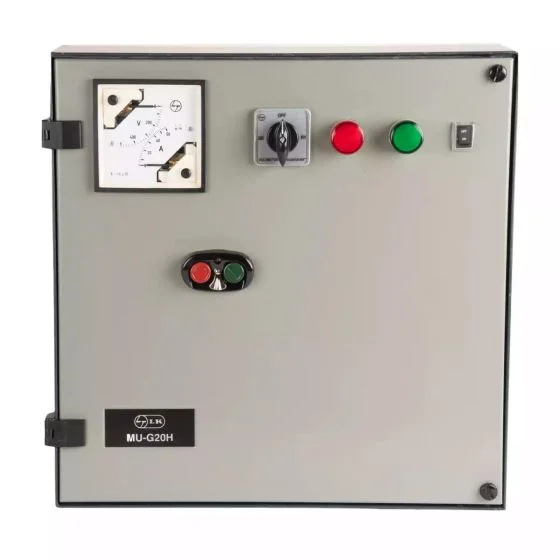In modern water management, automatic water pumps offer an efficient solution for ensuring steady water supply and usage in residential, agricultural, and industrial settings. These pumps are designed to start and stop automatically based on water levels and pressure needs, providing a reliable way to maintain consistent water flow without manual intervention. However, with the variety of pumps available, choosing the right one for your specific requirements can be challenging. In this guide, we’ll explore the key factors to consider, types of automatic water pumps, and tips for selecting the best model for your system.
Understanding Automatic Water Pumps
Automatic water pumps are designed with sensors or controllers that enable them to operate autonomously. These pumps detect changes in water levels or pressure and activate as needed. For example, in a household setup, an automatic water pump can maintain constant pressure in water lines for taps, showers, and appliances. In agricultural settings, these pumps can efficiently manage irrigation systems, automatically supplying water to crops based on soil moisture or tank levels.
The primary benefits of automatic water pumps include:
- Convenience: They eliminate the need for manual operation, starting and stopping on their own.
- Water Conservation: They run only when needed, reducing unnecessary water usage.
- Energy Efficiency: The automatic feature prevents continuous operation, saving electricity and extending the pump lifespan.
- Improved Water Pressure: Automatic pumps ensure steady water pressure, especially useful in multistory buildings or large properties.
Types of Automatic Water Pumps
There are various types of automatic water pumps suited for different applications. Understanding these types can help you narrow down your options.
- Self-Priming Pumps
- Description: Self-priming pumps are designed to handle air within the water line, allowing them to prime themselves without manual intervention.
- Applications: Ideal for irrigation, garden water management, and water supply in homes.
- Benefits: Self-priming pumps are easy to use and require minimal maintenance, making them perfect for areas prone to air or suction line issues.
Booster Pumps
- Description: Booster pumps are specifically designed to enhance water pressure, which is ideal in areas where water flow is naturally low.
- Applications: Commonly used in multistory buildings, booster pumps ensure adequate water pressure throughout the property.
- Benefits: These pumps maintain steady pressure, making showers, taps, and appliances function efficiently.
Submersible Pumps
- Description: Submersible pumps are placed underwater, typically within wells, tanks, or water bodies, and are highly efficient due to their proximity to the water source.
- Applications: Suitable for borewells, water tanks, and agricultural fields needing underground water extraction.
- Benefits: These pumps are energy-efficient and prevent motor overheating due to direct water cooling.
Sump Pumps
- Description: Sump pumps are designed to remove accumulated water in basements, crawl spaces, or low-lying areas.
- Applications: Ideal for areas prone to flooding or excess water, such as basements and storm drains.
- Benefits: Sump pumps help prevent water damage and keep basements dry, offering automatic operation during heavy rainfall.
- Jet Pumps
- Description: Jet pumps draw water from shallow or deep wells and are capable of handling low water levels.
- Applications: Commonly used in residential and commercial water supply systems with limited water sources.
- Benefits: They are reliable for both shallow and deep well applications and are effective for areas with low groundwater levels.
Also Read: Buying a submersible Pump Starter and Controller in India: What to look for?
Factors to Consider When Choosing an Automatic Water Pump
Choosing the right automatic water pump for your system requires evaluating several factors to ensure it meets your water needs effectively.
- Flow Rate Requirements
- The flow rate, measured in liters per minute (LPM) or gallons per minute (GPM), indicates how much water the pump can move. For domestic use, lower flow rates are often sufficient, while agricultural or industrial applications require higher flow rates.
- Tip: Calculate the peak water usage of your system and select a pump with a flow rate that meets or exceeds this demand.
Pressure Needs
- Water pressure is crucial, especially in multistory buildings or extensive properties. Choose a pump with adequate pressure to ensure consistent water flow throughout the entire area.
- Tip: Consider a booster pump if your main goal is to improve water pressure rather than water supply volume.
Pump Power (HP)
- The power of a pump, typically rated in horsepower (HP), determines its ability to handle different tasks. Higher horsepower pumps are usually required for heavy-duty or high-capacity applications.
- Tip: Match the horsepower to your specific needs. A high-power pump in a small system could lead to inefficiency and increased wear.
Installation Location
- Indoor or outdoor placement can impact your choice of pump. Submersible pumps are best for water sources like tanks or wells, while booster pumps are generally installed indoors or in covered areas.
- Tip: For exposed locations, ensure the pump is weatherproof and has suitable protective casings.
Automation and Control Features
- Different pumps come with varying automation levels, from basic on/off sensors to advanced controllers with digital displays and remote monitoring.
- Tip: Look for features like dry-run protection, pressure control, and automatic power-off functions to protect the pump and conserve energy.
Budget and Quality
- Prices for automatic water pumps vary significantly based on brand, type, and additional features. While budget is essential, investing in a reliable, high-quality pump can save maintenance costs in the long run.
- Tip: Choose a pump that balances quality and affordability, considering the warranty and customer support available.
Popular Models and Price Range
Here’s an overview of some common automatic water pump models and their approximate price range to help you make an informed choice.
- Basic Domestic Booster Pumps
- Price Range: $50 – $150
- Ideal for household use, with adequate pressure for most domestic applications.
- Heavy-Duty Submersible Pumps
- Price Range: $100 – $500
- Suitable for agricultural and industrial use, offering high flow rates and efficient underground pumping.
- Automatic Sump Pumps
- Price Range: $75 – $250
- Used for basement drainage, these pumps activate when water levels rise, helping prevent flooding.
- Jet Pumps for Wells
- Price Range: $150 – $400
- These pumps are versatile for good applications and ideal for water systems with inconsistent supply.
Installation and Maintenance Tips
Proper installation and regular maintenance are essential for ensuring the longevity and performance of your automatic water pump.
- Professional Installation: Hire a professional electrician or plumber for installation, particularly if the pump is intended for high-demand use.
- Regular Cleaning: Clean the pump filters and check for blockages to maintain flow and prevent overheating.
- Inspect Seals and Fittings: Periodically inspect seals and fittings to avoid leaks or pressure drops.
- Schedule Maintenance: Routine checks by a professional can identify any issues early, ensuring the pump operates efficiently for longer.
Conclusion
An automatic water pump can make water management far more efficient, whether for domestic, agricultural, or industrial applications. By understanding the types, features, and factors to consider, you can select a pump that meets your specific needs and budget. When choosing a model, balance functionality with quality, and prioritize safety features to protect your investment and ensure dependable operation.
For those looking for quality electrical solutions, Lauritz Knudsen Electrical & Automation offers reliable products and services tailored to diverse water management needs. With expertise in electrical systems, Lauritz Knudsen Electrical & Automation can help ensure your pump installation is safe, efficient, and perfectly suited to your system.



